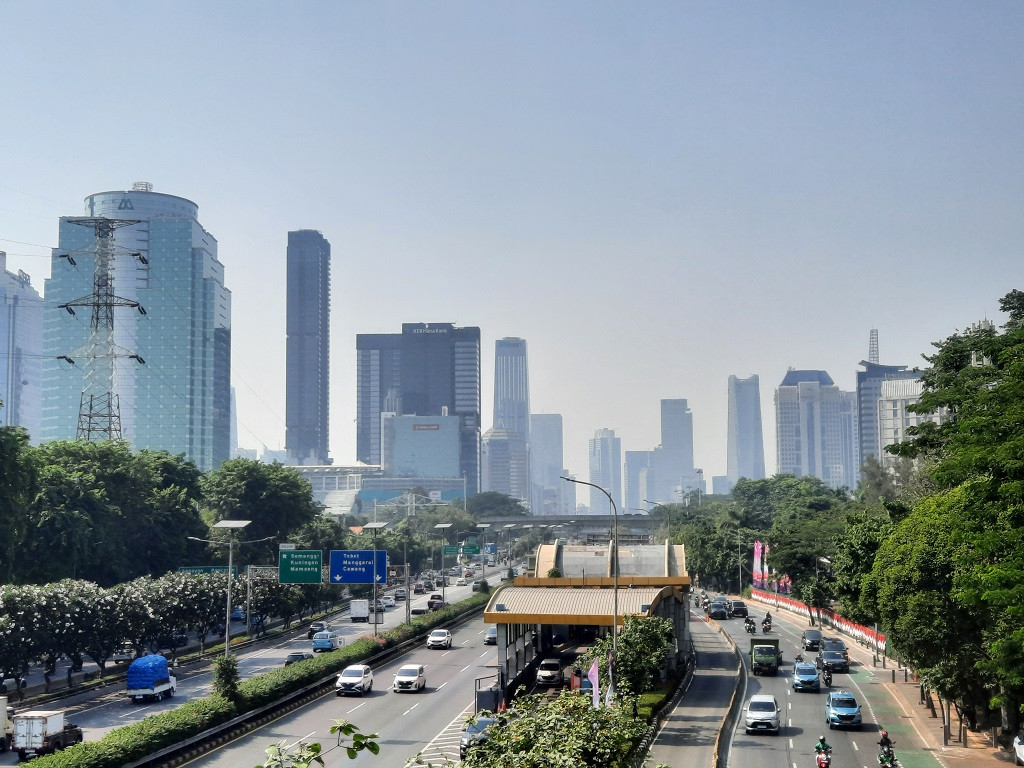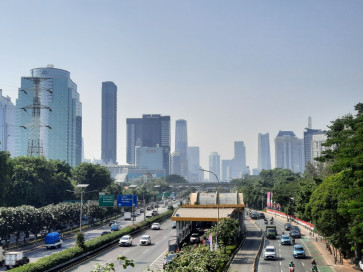Popular Reads
Top Results
Can't find what you're looking for?
View all search resultsPopular Reads
Top Results
Can't find what you're looking for?
View all search resultsCentering health in climate agenda of every COP is imperative
The true metric of COP’s successful deliberations should be safeguarding the health and well-being of the people.
Change text size
Gift Premium Articles
to Anyone
 Haze caused by air pollution shrouds skyscrapers in Jakarta on the morning of Sept. 5, 2023, as seen from the vicinity of the Jakarta Convention Center (JCC) in South Jakarta. Jakarta hosted the 43rd ASEAN Summit, where leaders of the bloc and its dialogue partners convened for high-level meetings from Sept. 5 to 7. (JP/A. Muh. Ibnu Aqil)
Haze caused by air pollution shrouds skyscrapers in Jakarta on the morning of Sept. 5, 2023, as seen from the vicinity of the Jakarta Convention Center (JCC) in South Jakarta. Jakarta hosted the 43rd ASEAN Summit, where leaders of the bloc and its dialogue partners convened for high-level meetings from Sept. 5 to 7. (JP/A. Muh. Ibnu Aqil)
A
lthough more than 180 million people are affected by extreme weather events annually, global leadership has not recognized the climate crisis as a public health crisis. Public health has never been treated as a serious factor in the consideration of climate action or as a significant driver of climate investment.
The 27th United Nations climate conference (COP27) last year saw human health start to receive greater attention. Significant steps toward making public health a priority in COP negotiations have since taken place. Conference resolutions that year referred to the need for governments’ climate action to promote human rights, including the right to the highest attainable standard of physical and mental health.
We know that the worse is yet to come. Without bold action, climate change is endangering lives and livelihoods as global food systems struggle to feed a growing global population and water sources are compromised. Climate change is also triggering a surge in infectious diseases that endanger millions of people.
The connection between health and climate change is obvious. Tipping points for climate breakdown are being surpassed and the resulting human mental and physical health tolls are escalating at alarming speeds, especially in the most vulnerable countries.
The true metric of COP’s successful deliberations should be the safeguarding of the health and well-being of people. By this metric, global leaders are failing. The World Bank estimates that every dollar spent on building climate resilience will result in an average return of US$4 as better-quality health and wider infrastructure benefit communities, and have lasting impacts over multiple sectors.
Health must be central to a just climate agenda because those least able to bear the impacts of climate change are also set to suffer the most. The impacts of climate change are being felt disproportionately by low and middle-income countries. Almost 40 percent of climate-related poverty will result from direct health impacts as people lose their livelihoods or see medical expenses soar.
While it makes sense to try to eliminate millions of premature deaths each year from air pollution, historically this battle has been chronically underfunded.


















